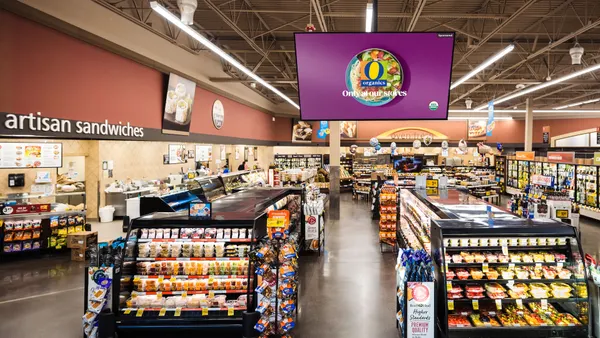Dive Brief:
- "Valerian and the City of a Thousand Planets," reportedly the most expensive film ever produced in France with a reported budget of $180 million, launched a mobile publicity campaign yesterday that can only be seen in the Amazon app, according to a press release by the e-commerce giant. EuropaCorp and STXfilms partnered with Amazon to let customers see previews of the sci-fi adventure before its release on July 21.
- Most Amazon boxes shipped in the U.S. have a code to unlock movie content by pointing a smartphone's Amazon app camera at it. Snapping a "Valerian" poster or IMDb movie page also unlocks exclusive content.
- iPhone users can see the content by tapping the "i" button on any character in the Amazon Stickers feature in its camera search, which lets customers point their camera at objects to receive product recommendations from Amazon.
Dive Insight:
Amazon has a history of putting movie ads on its shipping boxes, notably two years ago with a promotion for "Minions" released by Universal Pictures. The e-commerce pioneer ships more than a million packages a day, giving it a major platform to promote the movie. The boxes not only promote "Valerian," but also urge people to engage with the Amazon mobile app, whose camera function helps to identify which products can be bought from the company. Amazon added the image-recognition technology to its main app three years ago to help consumers find products simply by capturing them with a smartphone camera.
Amazon isn't the first company to leverage visual search and image-recognition software, which have been around for years but were generally used to provide entertainment with just a cursory relationship to brands’ broader marketing campaigns. Major brands like Amazon have recently begun to leverage smartphones' cameras as part of their engagement and marketing strategies, including Wayfair's and Pinterest's visual search tools.
Meanwhile, "Valerian" director Luc Besson has a lot riding on the success of the movie, which is based on a French comic series. His film company, EuropaCorp, produced the film and posted a net loss of $136 million for the fiscal year ending March 31 after a series of box-office duds, according to Deadline.










